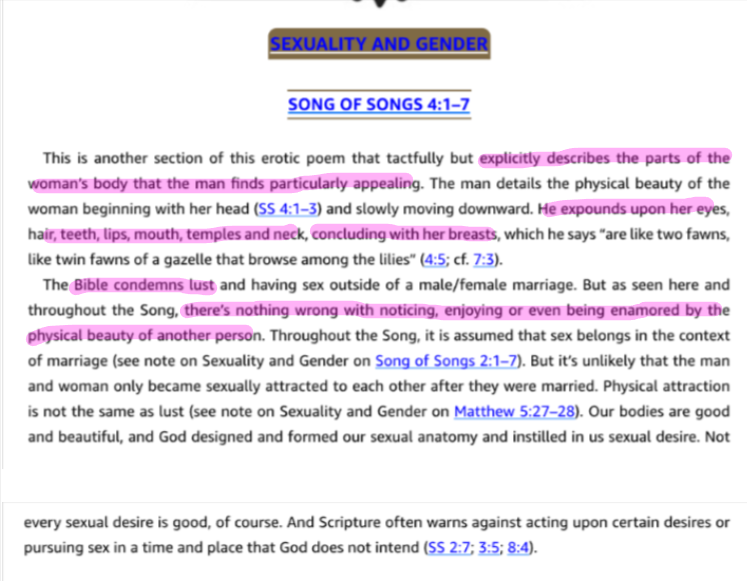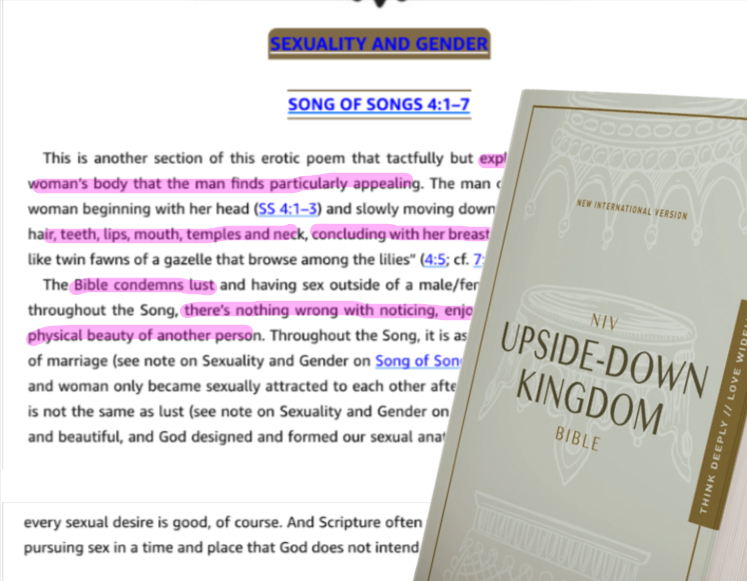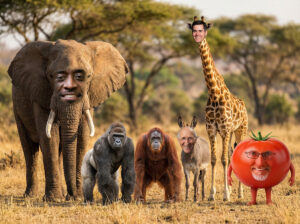Zondervan recently released a new study Bible called “The Upside-Down Kingdom,” (UDKB), edited by Preston Sprinkle, and it is a nasty piece of subversive work.
Sprinkle is the co-founder of Revoice, President of the Center for Faith, Sexuality, and Gender, and host of Theology in the Raw podcast. No stranger to perverse and novel theology, he’s known for platforming a Roman Catholic lesbian who praised an X-rated BDSM film, and championing “gay Christian” or “trans Christian” identities, declaring that these designations ought to be celebrated and fully embraced by the church, promoting personal pronouns, arguing that annihilationism and universalism as legitimate, orthodox Christian positions, and suggesting that it’s “good parenting” to let teenage LGBTQ children date people of the same sex.
His newest project, the UDKB, opens up with an introduction from him quoting progressive ‘Sojourners’ founder Jim Wallis in the first sentence before explaining that “biblically rooted Christian faith should determine how we think about all areas of life: economics, immigration, the death penalty, abortion, war, violence, power, justice, sexuality, and what it means to follow the Creator’s design for human flourishing.” He adds that “This bible edition was written to “capture the specific counter-culture vision of God’s reign on earth” and to “unleash this counter-cultural, politically subversive, upside-down nature of the Christian faith.”
To that end, the commentary notes have been atrocious, with Jared Moore of the Center for Baptist Leadership highlighting missives from the Song of Songs, which insists there’s nothing from with being attracted to and “enamored” by sexual body parts of people who are not married to, including women’s breasts for men, and presumably men’s below-the-waist bulges for women. He writes:
Sprinkle shockingly uses Song of Solomon 4:1-5 to argue that Christians can enjoy and be enamored by the bodies of others to whom they are not married.
Song of Solomon 4:1-5 reads:
“Behold, you are beautiful, my love, behold, you are beautiful! Your eyes are doves behind your veil. Your hair is like a flock of goats leaping down the slopes of Gilead. Your teeth are like a flock of shorn ewes that have come up from the washing, all of which bear twins, and not one among them has lost its young. Your lips are like a scarlet thread, and your mouth is lovely. Your cheeks are like halves of a pomegranate behind your veil. Your neck is like the tower of David, built in rows of stone; on it hang a thousand shields, all of them shields of warriors. Your two breasts are like two fawns, twins of a gazelle, that graze among the lilies.”
In this passage, the man is remarking on his wife’s beauty. He does not say these things to a stranger or a girlfriend but to his wife.
Yet, Sprinkle comments:
“The man details the physical beauty of the woman beginning with her head (SS 4:1-3) and slowly moving downward. He expounds upon her eyes, hair, teeth, lips, mouth, temples and neck, concluding with her breasts, which he says, ‘are like two fawns, like twin fawns of a gazelle that browse among the lilies’ (4:5; cf. 7:3).
The Bible condemns lust and having sex outside of a male/female marriage. But as seen here and throughout the Song, there’s nothing wrong with noticing, enjoying or even being enamored by the physical beauty of another person (emphasis added).
Throughout the Song, it is assumed that sex belongs in the context of marriage. But it’s unlikely that the man and woman only became sexually attracted to each other after they were married. Physical attraction is not the same as lust. Our bodies are good and beautiful, and God designed and formed our sexual anatomy and instilled in us sexual desire. Not every sexual desire is good, of course. And Scripture often warns against acting upon certain desires or pursuing sex in a time and place that God does not intend” (841).
This is another clear example of eisegesis from Sprinkle. His ministry is built on teaching that mindful same-sex lust and behavior are sin, but same-sex attraction is not sin and it “includes a virtuous desire to be intimate—in the David and Jonathan, or Jesus and John sense of the phrase—with people of the same sex.”1
He even contradicts what he previously said that the context for the Song of Solomon is marriage, by saying that a man can look at a woman he’s not married to and still enjoy and be enamored by her beauty, even her breasts, without lusting.
























4 responses to “‘Enamored’ By Women’s Breasts and Men’s Bulges? Zondervan’s New Bible Says That’s OK!”
My interpretstion of Song of Solomon is that the woman is bemoaning a shepherd boy she is in live with but she is forced to be in Solomon’s harem. She is talking about her old husband that Solomon stold her from. Solomon is an adulterer like his father. And Solomon ignores her complaints and tells her how hot she is as if that justifies him stealing her by force from her peasant husband. Its not inspired of God but God inspired it to bw retained so we could get ovwr idokatry of Solomon and David and stop buying Jewish propaganda that they were the greatest kings ever. So you can’t make the kind of arguments from it that these people want to make. To those shocked that I don’t believe its inspired; neither did Martin Luther.
Its funny you think I’m attempting to shock you when I’m attempting to school you, and I am succeeding whether you like it or not.
Yes and amen, because the so-called “old testament” is nothing more than bollocks created by the Talmud World Order to neuter the White Anglo Saxon Protestant man.
lots of twisty here, staff writer.